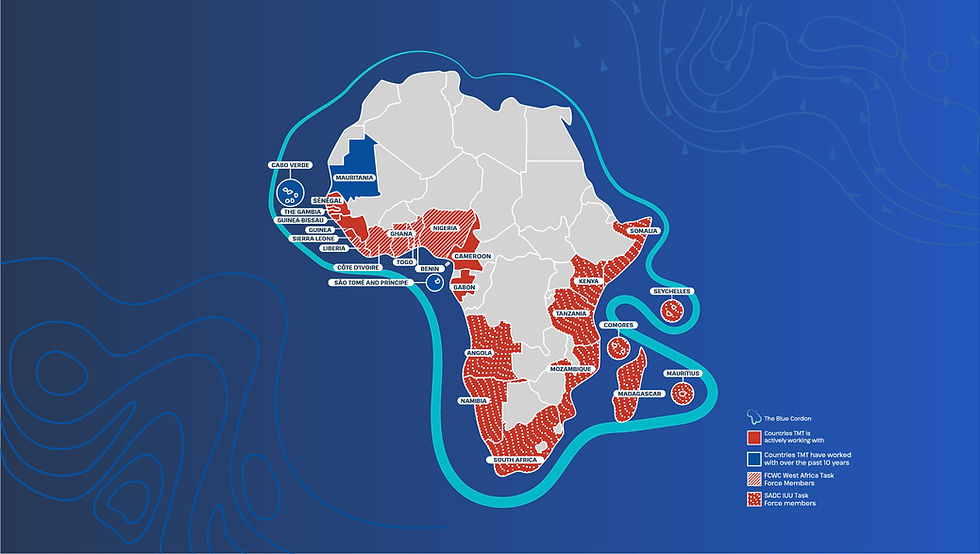SPOTLIGHT ON: The exploitation of company structures by illegal fishing operators Updated
- Aug 24, 2023
- 2 min read
This Spotlight Briefing was produced by TMT in cooperation with C4ADS in 2020, with additional Pacific case studies added in cooperation with the Pacific Islands Fisheries Forum Agency in July 2023.
The objective of this SPOTLIGHT BRIEF is to enable readers to better understand and mitigate the risks associated with fishing operations utilising complex ownership structures.
Distant-water fishing is a transboundary operation, where vessel ownership, vessel registration, ports, labour sources and supply chains can be spread across several different countries and jurisdictions. As a result, any legal matters can become the responsibility of several enforcement authorities, frequently located far from where a violation occurred.
Adding to the complexity of this enforcement framework is the fact that many distant-water fishing companies and owners exploit a variety of complex company structures, with individual companies based across many jurisdictions, to own and run their operations.
The use of shell companies, front companies, and joint ventures provides significant opportunities for distant-water fishing operators to cover up illegal operations and conceal their true identities. Operations using these company structures have been linked to a wide variety of illegal fishing and broader legal violations, including illegal harvesting, document forgery, vessel identity fraud, human trafficking, crew labour abuses, and tax evasion.
Crucially, use of these company structures generally hides ultimate beneficial ownership (UBO). This presents a significant challenge for authorities attempting to manage, investigate, or prosecute fishing operations that are using such complex company structures, or the true owners who are the actual financial beneficiaries of illegal activity. As a result, enforcement efforts are frequently focused on the vessel (the asset) rather than the actual culprits.
Illegal fishing operations overwhelmingly impact developing coastal States, and many of the company structures examined in this brief disproportionately target and occur in these countries. The specific type of company structure that is utilised by fisheries operators can have a significant impact on States’ abilities to control distant-water vessels operating in their waters or ports, and enforce
laws and regulations.
Understanding the different company structures used by fisheries operations - as well as beneficial owners’ motivations for using these structures - is crucial to strengthen the ability of fisheries monitoring, control, surveillance and enforcement (MCS) agencies to effectively detect and investigate infringements, administer penalties, and exclude operators exploiting these structures.





